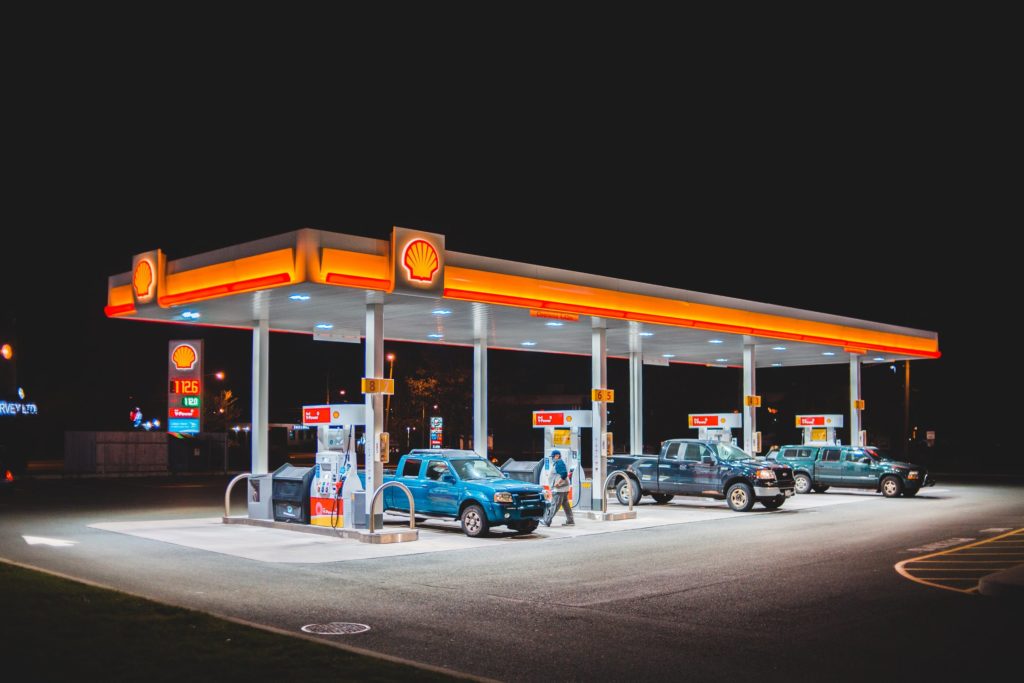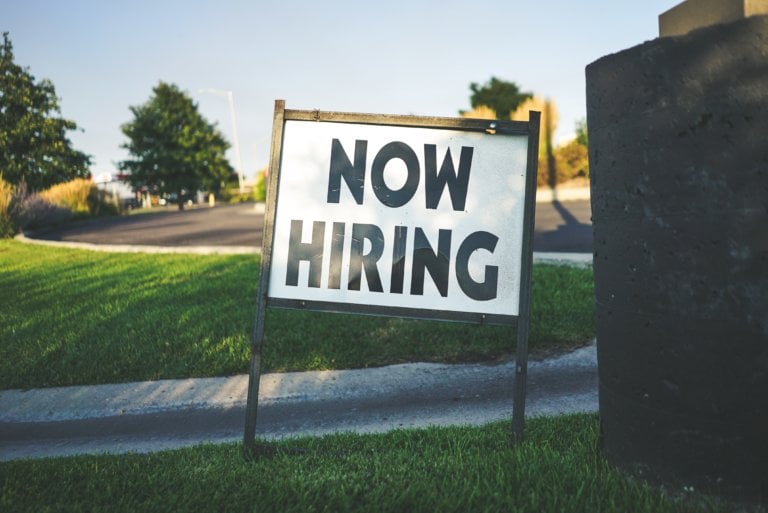Knowing how to start a gas station successfully is only part of the process of starting a gas station business. Here’s your in-depth 10-step guide to get your gas station running smoothly!
Opening a business can be a complex process full of unforeseen surprises, and opening a gas station is no different. With an estimated market size of $138 billion in 2022, there is plenty of opportunity waiting if you play your cards right.
If you’ve always dreamt of owning your own business but have no idea how to open a gas station, this guide will walk you through all the necessary steps. Follow it closely to ensure that your new business will be well planned out, legally compliant, and, above all, successful.
The Watercooler EP 04: How to Open a Gas Station
Jessica and Tod dive into the steps and considerations involved in opening a gas station. Learn about the key factors, from securing a location to managing operations, in this insightful conversation.
Write Your Business Plan
Like any successful business, opening a gas station starts with meticulous planning. Your business plan is much more than just an outline of your goals—it will help you identify, describe and analyze the specifics of your business and is key in securing funding for your future gas station.
To help you get a clear picture of your path forward, your business plan should include the following points:
Market analysis
Gas stations operate in a competitive market characterized by razor-thin profit margins of less than 2%. That’s why you must research and understand your competition, so you learn from their success and avoid their mistakes. Some of the questions you want to ask in your market analysis are:
- What are your competitors’ strengths, and how can you adapt those strengths to your own business?
- What are your competitors’ weaknesses, and how can you eliminate those weaknesses in your own business?
- How can you solve the same problems better or different than your competitors?
- Who are your direct competitors, and could they be a significant threat to your gas station?
- Who is your ideal customer?
- How can you use location to drive traffic to your business?
Location
The location of your gas station can make or break your business and should be an absolute priority during the planning stage. If you’ve done your market analysis correctly, you should already have a good idea about whether the location you picked can propel your business forward. Are you planning to open your gas station along a populated highway and focus on truck drivers and commuters or have you chosen a location across from an established competitor that isn’t maximizing its potential?
When choosing a location for your gas station, a good tactic is to look into budding neighborhoods or industrial parks. These locations are often just outside the city and require a gas station. That can translate into more commuters and cheaper real estate, but the location might lack the existing infrastructure needed to operate your gas station.
How much does it cost to open a gas station?
Starting a gas station is not cheap; you can expect to spend anywhere between $250,000 to $2,000,000 to get your business off the ground. The exact costs vary depending on the state you’re in, your chosen location, and whether you buy a franchise or open an independent location. Your business plan should include detailed estimates of the cost involved.
Use this list as a guide for the costs you need to research:
- Purchasing or leasing the location
- Securing a franchise agreement
- Registering your business
- Trademarking a business name
- Insurance, licenses, permits, and other legal fees
- Securing a supplier
- Inventory (gas, consumables)
- Setting up your gas station
- Setting up your convenience store
- Hiring and training employees
- Royalties per your franchise agreement
- Marketing materials
In addition to the cost of opening a gas station, your business plan should also work out an educated estimate of the running cost of your business. This should include all expenses from licensing and insurance to inventory and payroll.

List your products and services
Modern gas stations are much more than just a row of fuel pumps, and you’d be hard-pressed to find a successful gas station that doesn’t offer additional services. Your business plan should include the number of gas pumps you intend on operating (based on your market research) as well as additional products and services to maximize your profit margins. The most common products and services at gas stations include:
- Convenience stores selling snacks, drinks, car accessories, tobacco, alcohol, and lottery tickets
- Car washes (Full service or self-service)
- Air pumps
- Restrooms
- Mechanic for oil changes and repairs (increasingly rare nowadays)
Keep in mind that each of these services carries its own costs, in addition to permits and maintenance requirements. If you decide to operate your gas station through a franchise agreement, you will likely also be limited in the services and products you can offer.
Set Up Your Business
Form a legal entity
Forming a legal business entity is the next step in starting a business. Make sure you consult with your attorney to discuss which type of legal entity is best for you.
While a sole proprietorship is the quickest entity to set up and enjoys certain tax benefits, running a gas station this way is not recommended. Gas stations are a risky business, and should there ever be an accident or even a robbery, you alone will be liable for damages.
That’s why most gas station owners opt for a Limited Liability Company (LLC). This still gives you some of the tax benefits used by sole proprietors but protects you from being personally liable for any legal issues.
An LLC is especially attractive for small business owners that own only one gas station, as you will pay lower fees than a corporation and get to choose if you want to be taxed as a sole proprietor or a corporation. Still, it can make it more difficult to secure a loan for your business.
Registering a corporation offers you the same legal protection as an LLC but comes with additional costs and double taxation (corporate tax + income tax). It’s generally recommended for owners that plan to open a chain and grow their business to compete with the big brands out there.
Forming an LLC or a corporation is relatively simple and, in most states, can be done online. If you don’t want to deal with the paperwork at all, plenty of companies will do all the work for you. Their services will usually include filing as an LLC or corporation and registering with the IRS. (Don’t skip this step!)
Register for taxes
As a small business owner, you must get an employer identification number to open your gas station. An EIN is a nine-digit number used when filing your business taxes with the IRS. You can easily apply for an EIN online with the IRS and should receive your number in just a few minutes.
Depending on tax regulations in your state, you might also need to register for a state tax ID when starting a gas station. Be sure to consult with an accountant or tax lawyer to avoid missing anything important.
Buy a franchise
Most gas station owners choose to get into business by buying a gas station franchise. This can reduce some of the financial burdens of opening a gas station and has the added benefit of immediately giving your gas station a recognizable brand.
When choosing a franchise, make sure you intimately understand the franchise agreement and agree with its terms. Each franchise has different requirements for you to become a franchisee, and many won’t even consider you if you don’t have a background in management or entrepreneurship.
Check the qualifications of some of the bigger gas station franchises to find one that matches your business plan:
Before signing any franchise agreement, make sure you have reviewed the contract with a specialized lawyer. They can also help you negotiate the terms of your agreement and secure lower royalties and other benefits.
Open a business bank account and credit card
Many first-time business owners make the mistake of using their personal bank account for their business. This can not only complicate your accounting but also put your personal assets at risk if your business ever gets sued.
Don’t make the same mistake and open a business bank account early on. Additionally, learning how to build business credit can help you get financing and business credit cards with better interest rates and higher lines of credit in your business’s name.
Get Funding For Startup Costs
With your business plan fleshed out and your business registered as a legal entity, it’s time to get funding for your gas station. As we’ve already established, opening a gas station can cost anywhere between $250,000 to $2,000,000, so outside funding will be inevitable for most people.
If you’ve done your homework in your business plan, you are well set up to request a loan. There are several avenues available for small businesses to get a loan.
Business loan from a bank
If this isn’t your first rodeo and you can show a stellar track record with previous businesses, a conventional bank loan can be an option. But even then, most banks will decline your request for a loan due to traditionally slim profit margins and the perceived risk of a gas station business. This doesn’t mean you shouldn’t try, but you should come well-prepared with a water-tight business plan and anything documenting your previous business experience.
Small Business Administration (SBA) loans
The Small Business Administration has loan programs designed to help small businesses, such as gas stations, get started. While the SBA doesn’t lend money directly to you, they work with other lenders to reduce their risk on a loan by backing it by as much as 85%.
SBA loans usually require low down payments and offer reasonable interest rates but you may have to put down a lot of collateral. SBA loans also require a lot of paperwork, can be difficult to secure, and usually take a long time to get approved.
Other options
Besides loans, prospective gas station owners often fund their initial costs through low APR business credit cards or friends and family. Business credit cards can be a good option for smaller purchases like equipment and inventory, but you need to be careful to pay off what you owe in time.
Family and friends can also be a good option if you can agree on mutually beneficial terms with everyone. These can range from zero-interest loans to them receiving equity in your business. Be warned, though, that mixing business and family has ruined more than one relationship.

Buy Property and Equipment
Once you’ve taken care of the funding that you’ll need to start a gas station business, you’ll be able to officially buy or lease the property where you’ll have your station. Before signing the purchase (or lease) agreement, there are a few important pitfalls to look out for:
Who owns the equipment?
If the site has this equipment, make sure that the sale also includes ownership of the pumps, tanks, and other necessary equipment. Many gas station owners don’t own the equipment itself but lease it from the property owner or a franchise.
Depending on the term of your franchise agreement, you may be required to use specific equipment, branded pumps, etc. In these cases, you will want to exclude existing equipment that does not conform to these requirements from the purchase. Make sure to use a qualified lawyer to finalize the sale.
Check the maintenance history of all tanks and pumps to ensure they work and comply with state regulations. More than one gas station owner has lost their business because they purchase a station with defective equipment.
Environmental Assessment
If you want to open a gas station, you have to get a so-called Phase 1 Environmental Assessment of the location done. This document, which has to be prepared by an environmental professional, determines the environmental history of the location and the properties surrounding it.
Without this document, you won’t get a loan from the SBA. More importantly, the Phase 1 Assessment will allow you to cancel a purchase agreement if the assessment shows issues and your purchase agreement includes an environmental contingency clause.
All Essential Gas Station Documentation in One Place
Use a Digital Solution to Store Your Phase 1 Environmental Assessment and All Other Documents for Your Gas Station
Find A Supplier
If you are operating your gas station as a franchise, check your franchise agreement to see if you are bound to a specific supplier for your gas (chances are you are). If not, it’s time to research different gas suppliers and do a thorough rate comparison.
Gas suppliers often receive a percentage of your sales, so be sure to compare and negotiate.
Your business plan should offer you a good estimate of how much gas you will need and how often your reserves should be replenished.
Once again, have an attorney look over your franchise agreement and your supplier contract to ensure you don’t agree to anything you shouldn’t.
Get All Necessary Permits And Insurance
One step that can’t be skipped when opening a gas station is acquiring the proper permits and insurance. The specific licenses will vary from state to state, and it is your responsibility to make sure that everything complies.
Some standard licenses and permits include:
- Building and fire inspection
- Tank and pump inspections
- Water discharge permit
- Alcohol, tobacco, and lottery ticket licenses
- Food and beverage distributor licenses
- Certificate of occupancy
- Health inspection
This is also a good time to ensure that your new business is properly insured. General liability insurance is a given, but gas stations require a little more than basic business insurance.
Additional insurances can include:
- Workers’ compensation insurance
- Fuel tank contamination insurance
- Liquor liability insurance
- Franchise insurance
Set Up Your Day-To-Day Responsibilities
Establish hours of operation
While writing your business plan, you will likely have already decided your business hours. Many gas stations, especially in high-traffic areas, are open 24/7, and if you want to keep up with the competition, you might have to do the same.
That means hiring enough employees to cover all shifts. Brush up on your knowledge of different types of work schedules, as well as the benefits of full-time vs. part-time work schedules. We highly recommend researching the best tools for employee time tracking, job, and shift scheduling, communication, reporting, and more to ensure you manage your employees as efficiently as possible.

Learn about inventory management
Since your gas station will likely sell not just gas but also a range of goods, such as snacks, drinks, and accessories, you must keep your inventory organized. Learning how to keep a running inventory every day will let you identify when you need to restock before you run out of products. Make sure to nurture good contacts with your vendors and understand estimated delivery dates to better coordinate when you need to resupply.
Set up security measures
One of the major risks to gas stations, especially those operating around the clock, is crime. If you’ve been following this guide, you’ll already be insured against theft, but it’s important that you and your employees are safe. Invest in installing security cameras and shatter-proof windows as an additional security measure and establish protocols so your staff knows what to do in an emergency.
Market Your New Gas Station
Now that all the hard parts of starting your gas station are out of the way, it’s time to start marketing your new business. If you picked the right location for your gas station, you’ll likely receive some customers that simply saw your business and decided to stop. But to make your gas station a success, you’ll need to invest in a proper marketing strategy.
Become active online
Google Maps, Apple Maps, and Waze are fantastic tools to help drivers discover your business on their commute. Make sure to list your gas station on these services so you’ll pop up when they search for a gas station near them.
In addition, open a business account on Yelp and any local business directories. You can even create a comprehensive social media strategy for all major platforms like Facebook, Twitter, Instagram, and TikTok.
Use pole signs and highway exit signs
Good, old-fashioned highway signs can help a new gas station business get off the ground, especially if you’re located near major exits or commuter hubs. Many drivers don’t have loyalties to specific brands and just want to find the closest gas station. If you’re running special offers or discounts, make sure to let drivers know to give them an extra incentive to visit your gas station.
Create a loyalty program
To keep people coming back, consider offering a loyalty program when you’re starting your gas station and slowly build up a loyal customer base. Smart marketers know that many times it’s cheaper to retain existing customers than to find new ones. Crunch the numbers for your business to figure out how much you can spend to keep your customers coming back.
Lower your prices
We’ve mentioned previously that gas stations operate on very thin profit margins when looking at gas sales only. In fact, most gas stations make the majority of their profits with all the other services and goods they offer. Consider lowering your gas prices by just a few cents to attract customers that will purchase additional items from your convenience store.
Partner with food franchises
Nowadays, many gas stations partner with food franchises to attract hungry travelers to their business. If you’ve picked your location well, a partnership with a food franchise can be mutually beneficial and transform your gas station into a rest stop. This creates even more opportunities for customers to also enter your convenience store and buy goods.
Prepare For The Future
It’s no secret that the gas station industry is in decline. As of early 2020, there were roughly 115,000 gas stations in the US, and that number is falling quickly. That doesn’t mean that people are driving less, but they are switching from petrol-based cars to electric cars.
Get ahead of the competition and already install a number of charging stations for electric vehicles. Not only will this prepare your gas station for the (not-so-distant) future, but it will put your business on the map for the electric vehicle community and ensure a steady flow of customers.
Moving Forward on Starting a Gas Station: Prepare and Implement
Now that you have a solid roadmap for how to start a gas station, all that’s left is for you to implement it. Start with a comprehensive business plan, and don’t let yourself get discouraged by the inevitable setbacks you will experience.
Gas stations see tight margins, but they can turn a decent profit if carefully planned and well run. Even with the growth of electric and hybrid vehicles, conventional gas stations will be around for at least a few more decades.
Do your research, set up your contingency plan for when incidents occur, and most importantly, don’t be afraid to go with the times.
If you take all of this advice to heart, your gas station is off to a roaring success.
Run Every Area of Your Gas Station Business With Connecteam
Easily track your employees’ work hours, create their schedules, streamline communication, and so much more.




